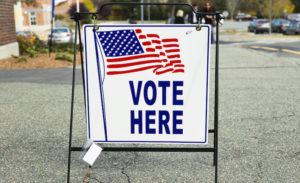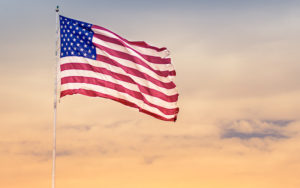
FDA releases new COVID-19 vaccine guidelines, EPA gives Oklahoma authority over environmental programs on tribal lands, and more…
IN THE NEWS
- The U.S. Food and Drug Administration (FDA) released guidelines for emergency use authorization for COVID-19 vaccines. In the new guidelines, FDA recommended that vaccine developers follow up with half of trial participants for at least two months. Last week, White House officials blocked the new guidelines because of concerns that the guidelines would prevent FDA from approving a vaccine before the election. The White House approved the guidelines following reporting by The New York Times that the White House prevented FDA from releasing them. Public health researchers and physicians drafted a letter to FDA Commissioner Stephen Hahn encouraging FDA to adopt even stricter guidelines for emergency use authorization.
- The U.S. Environmental Protection Agency (EPA) granted a request by Oklahoma Governor J. Kevin Stitt to administer several environmental regulatory programs in tribal lands. Under the granted request, Oklahoma will be responsible for overseeing the implementation of the Clean Air Act, Clean Water Act, and Safe Drinking Water Act. Stitt reportedly stated that the approval would “better protect public health and our environment by ensuring certainty and one consistent set of regulations for all citizens of Oklahoma,” including citizens of tribes. Chuck Hoskin Jr., Cherokee Nation principal chief, reportedly stated that it was disappointing that “the Cherokee Nation’s request that EPA consult individually with affected Oklahoma tribes was ignored” and that the request was a “knee-jerk reaction to curtail tribal jurisdiction.”
- The U.S. Department of Homeland Security (DHS) announced an interim final rule that would prevent some skilled foreign workers from obtaining H-1B visas. The rule would narrow the definition of “specialty occupation,” impose additional requirements on companies making offers to employees, and enhance the agency’s enforcement powers. DHS officials stressed that the rule would “combat the use of H-1B workers to serve as a low-cost replacement for otherwise qualified American workers.” Critics argued that the rule is intended to increase support for the Trump Administration prior to the election.
- President Donald J. Trump instructed U.S. Secretary of the Treasury Steven Mnuchin and White House Chief of Staff Mark Meadows to suspend negotiations on the COVID-19 relief bill with Democrats in the U.S. Congress until after the November general election. On Wednesday, Meadows reportedly said that the Trump Administration still supports piecemeal relief measures but remains pessimistic about a comprehensive plan. U.S. House of Representatives Speaker Nancy Pelosi (D-Calif.) accused Republicans of blocking a deal by insisting that a new relief package include a large tax cut for individuals who make more than half of a million dollars per year. U.S. Representative Richard Neal (D-Mass.) called the halt in negotiations “a dangerous abandonment of families who are going hungry and losing their homes.”
- The U.S. House Judiciary Committee released a report, championed by Democrats, claiming that large technology companies—Amazon, Apple, Facebook, and Google—were preventing competition in the technology industry. The Committee recommended measures to restore competition in the industry, strengthen antitrust laws, and enhance antitrust enforcement by the Federal Trade Commission and U.S. Department of Justice. Democrats will need bipartisan support to implement their proposals, but U.S. Representative Ken Buck (R-Colo.) reportedly stated that the report’s recommendations “are non-starters for conservatives.” The drafters of the report, however, apparently stressed that they “firmly believe that the totality of the evidence produced during this investigation demonstrates the pressing need for legislative action and reform.”
- The U.S. Supreme Court declined to hear an appeal of a lower court ruling that upheld a U.S. Department of Health and Human Services rule that reduced Medicaid reimbursements to several children’s hospitals. The hospitals argued that the case was a good opportunity to reconsider Chevron deference, which instructs judges to defer to reasonable agency interpretations of ambiguous statutes. A friend of the court brief from the New Civil Liberties Alliance noted that several sitting justices have criticized Chevron deference for allowing overly expansive interpretations of congressional grants of power and argued that Chevron deference is a “judgemade docket-clearing mechanism that has no statutory basis in the Administrative Procedure Act and is impermissible under the Fifth Amendment’s Due Process Clause.”
- Florida Secretary of State Laurel M. Lee extended the deadline to register to vote by one day after the Florida voter registration website malfunctioned. Lee said the website crashed in the hours before the deadline due to unprecedented heavy traffic with over one million requests to register per hour. After the technological malfunctions, a coalition of voting rights groups filed a lawsuit requesting that Florida Governor Ron DeSantis and Secretary Lee extend the deadline to register to vote. Stephanie Porta, executive director of Organize Florida, reportedly said that “in the midst of a global health pandemic, Floridians should not be denied the right to vote because the Secretary of State cannot properly update and maintain a website.”
- New York Governor Andrew Cuomo imposed new restrictions on areas with rising COVID-19 positivity rates. The restrictions impose guidelines based on the type of activity and proximity to clusters of new COVID-19 outbreaks, including limiting religious gatherings. Governor Cuomo released these restrictions a day after directing schools in COVID-19 hotspots to close. Before the Governor’s announcement, New York City Mayor Bill de Blasio planned to require nonessential businesses to close in nine ZIP codes. Communities in the affected areas of Brooklyn, New York protested the Governor’s new restrictions, reportedly calling them “constitutionally questionable.”
- The U.S. Small Business Administration issued a proposed rule that would expand eligibility to larger businesses for popular agency programs, which grant low interest loans and special contracting opportunities to businesses that are below designated sizes. The proposed rule is part of a review of small business size eligibility cutoffs that occurs every five years as a requirement under the Small Business Jobs Act. The cutoffs differ by industry classification, and are evaluated based on number of employees, annual revenue, and other factors relevant to each industry. The proposed revisions would allow larger businesses to qualify in most industry classifications and, due to economic conditions caused by COVID-19, would retain current size eligibility standards in industry classifications where they would have otherwise been lowered.
WHAT WE’RE READING THIS WEEK
- In a study published in Health Affairs, Christopher Auld of the University of Victoria and his coauthors studied new regulations that required physicians to obtain prior authorization from insurance companies to receive reimbursement for opioid prescriptions. Auld and his coauthors found the new regulations resulted in a reduced number of opioid prescriptions. Auld and his coauthors concluded that insurance restrictions that prevent doctors from prescribing opioids without authorization could avoid unnecessary opioid use.
- Shi-Ling Hsu, professor of law at Florida State University, argued in an unpublished essay that the Trump Administration is fostering an anti-science attitude in the American public consciousness. Hsu acknowledged that areas of science that relate to regulation have always been at risk of losing legitimacy due to political influence. He argued, however, that the Trump Administration is unique in its practice of attacking areas of science that have nothing to do with regulation, such as when President Trump criticized Anthony Fauci, director of the National Institute of Allergy and Infectious Diseases, for contradicting the President’s assessment of a vaccine production timeline. Hsu concluded that this phenomenon represents an attempt to “use science as part of a political culture war, reviving a populist suspicion of intellectuals that has a long and cyclical history in American culture.”
- In a recent National Bureau of Economic Research working paper, Mark Egan, professor at Harvard Business School, Shan Ge, professor at New York University Stern School of Business, and Johnny Tang, PhD candidate at Harvard University, found that a U.S. Department of Labor rule, which imposed a fiduciary duty on brokers who managed retirement accounts, improved investor welfare. Egan, Ge, and Tang explained that there was a conflict of interest between brokers who were encouraged to sell high-fee products and investors who benefit from low-fee products. After the Labor Department proposed and partially implemented the rule, Egan, Ge, and Tang found that sales of high-fee variable annuities decreased by 50 percent. Egan, Ge, and Tang suggested that variable annuity sales responded more to the financial interests of brokers than investors.
FLASHBACK FRIDAY
- In a 2016 essay in The Regulatory Review, Joshua A. Douglas, professor at the University of Kentucky College of Law, argued that many states are enfranchising more people by allowing people convicted of felonies to vote and by making registering to vote easier. Douglas noted that states enhancing voting rights selected competent election administrators and adopted new technology to make registering to vote and the process of voting more streamlined. Douglas acknowledged trends of attempted voter suppression in some states, but emphasized the efforts of state and local governments to increase voting access will “create a better functioning democracy.”



